
The Thundering Heart of Africa: Murchison Falls National Park
Murchison Falls National Park, located in northwestern Uganda, is a breathtaking gem for nature lovers and adventure seekers. The park is named after the dramatic Murchison Falls, where the Nile River forces its way through a narrow gorge, creating a powerful cascade that plummets 43 meters. This spectacle is not only a visual delight but also a symphony of sound, as the roaring waters echo through the surrounding forest. The park spans over 3,840 square kilometers and is home to a diverse range of wildlife. Visitors can embark on game drives to spot elephants, lions, giraffes, and the elusive leopard. The park is also a birdwatcher's paradise, with over 450 species of birds, including the rare Shoebill stork. Boat cruises on the Nile offer a unique perspective, where one can see hippos, crocodiles, and an abundance of water birds up close. In addition to its natural wonders, Murchison Falls National Park offers a variety of activities to enrich your visit. Guided nature walks, fishing expeditions, and cultural tours to nearby villages provide an immersive experience into the park's rich biodiversity and local heritage. Whether you're trekking through the lush woodlands or relaxing by the riverbanks, Murchison Falls National Park promises an unforgettable adventure.
Local tips in Murchison Falls National Park
- Visit the falls during the rainy season (March to May, September to November) for the most impressive water flow.
- Start your game drive early in the morning or late in the afternoon for the best chance to see wildlife.
- Bring binoculars for birdwatching and a good camera to capture the stunning landscapes and wildlife.
- Consider taking a guided boat cruise to experience the falls from the water and see aquatic wildlife.
- Wear comfortable, sturdy shoes and carry insect repellent for the nature walks.
The Thundering Heart of Africa: Murchison Falls National Park
Murchison Falls National Park, located in northwestern Uganda, is a breathtaking gem for nature lovers and adventure seekers. The park is named after the dramatic Murchison Falls, where the Nile River forces its way through a narrow gorge, creating a powerful cascade that plummets 43 meters. This spectacle is not only a visual delight but also a symphony of sound, as the roaring waters echo through the surrounding forest. The park spans over 3,840 square kilometers and is home to a diverse range of wildlife. Visitors can embark on game drives to spot elephants, lions, giraffes, and the elusive leopard. The park is also a birdwatcher's paradise, with over 450 species of birds, including the rare Shoebill stork. Boat cruises on the Nile offer a unique perspective, where one can see hippos, crocodiles, and an abundance of water birds up close. In addition to its natural wonders, Murchison Falls National Park offers a variety of activities to enrich your visit. Guided nature walks, fishing expeditions, and cultural tours to nearby villages provide an immersive experience into the park's rich biodiversity and local heritage. Whether you're trekking through the lush woodlands or relaxing by the riverbanks, Murchison Falls National Park promises an unforgettable adventure.
When is the best time to go to Murchison Falls National Park?
Iconic landmarks you can’t miss
Murchison Falls National Park - Kichubanyobo entrance gate
Explore Murchison Falls National Park, Uganda's premier destination for breathtaking wildlife, stunning landscapes, and unforgettable safari experiences.
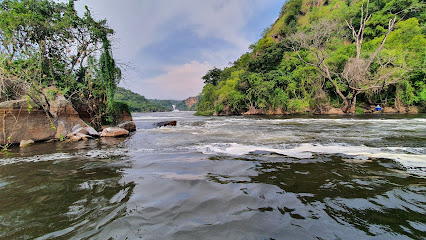
Red Chilli Rest Camp
Experience the ultimate blend of adventure and relaxation at Red Chilli Rest Camp in Murchison Falls National Park, Uganda's breathtaking natural wonder.
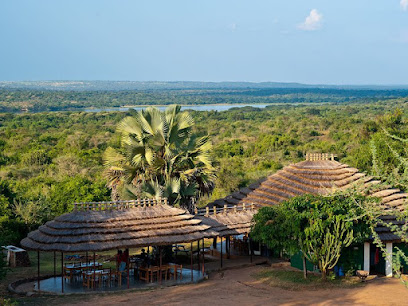
Murchison Falls National Park Northern Gate (Tangi)
Discover the breathtaking Murchison Falls National Park, where wildlife encounters and stunning landscapes await every traveler in Uganda's natural paradise.
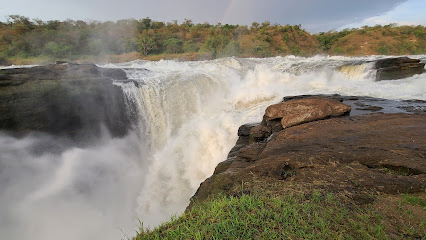
Murchison Falls National Park Safari
Discover the breathtaking beauty and wildlife of Murchison Falls National Park, Uganda's largest national park and a must-see for adventure enthusiasts.
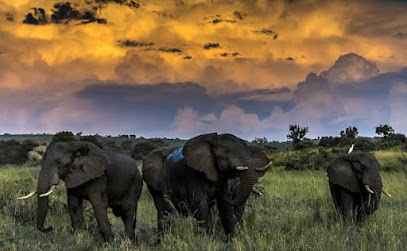
Murchison Falls Bamboo Village
Discover the eco-friendly Murchison Falls Bamboo Village, your serene escape near Uganda's stunning Murchison Falls National Park.
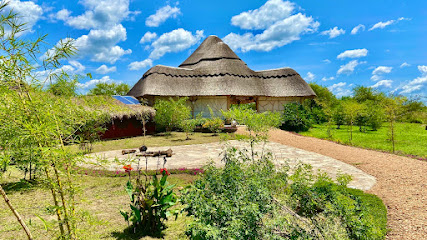
Murchison Falls National Park - Tangi entrance gate
Explore Murchison Falls National Park, where the Nile's roar meets breathtaking landscapes, diverse wildlife, and unforgettable adventures in Uganda's natural haven.
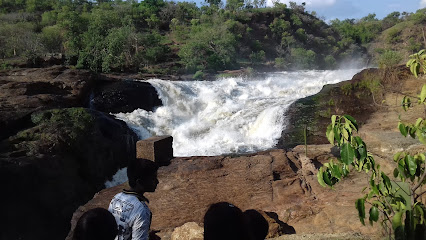
Murchison Falls Safaris
Explore the breathtaking Murchison Falls National Park with Murchison Falls Safaris, where adventure and wildlife await in stunning landscapes.
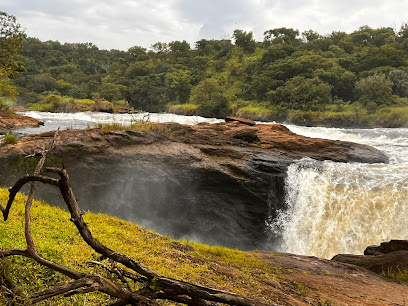
Murchison Falls National Park, Bugungu Gate
Explore the breathtaking beauty and wildlife of Murchison Falls National Park, where adventure and nature combine in Uganda's largest national park.
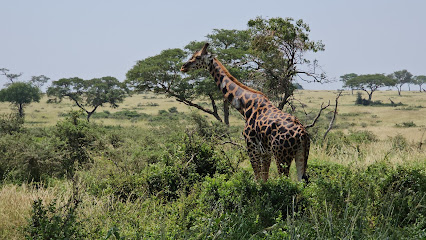
Murchison falls national park
Explore the breathtaking landscapes and diverse wildlife of Murchison Falls National Park, Uganda's largest national park and a haven for nature lovers.
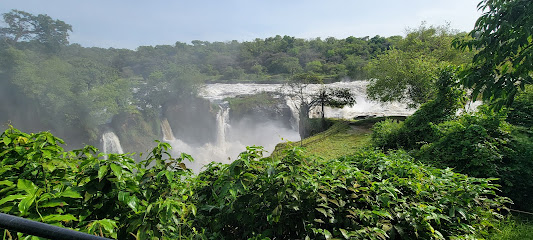
Murchison Falls Safari
Discover the breathtaking beauty and diverse wildlife of Murchison Falls Safari, Uganda's premier destination for adventure and nature lovers.
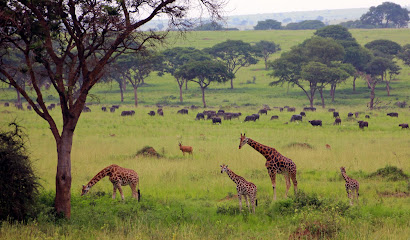
Murchison Falls safari
Experience the breathtaking beauty and wildlife of Murchison Falls, Uganda's largest national park, where adventure meets nature's splendor.
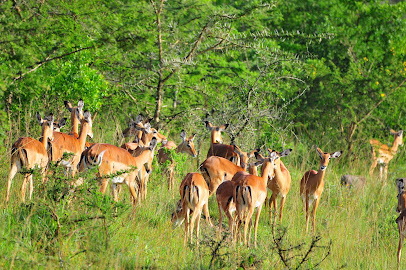
murchisonfallsuganda
Explore Murchison Falls National Park, a breathtaking destination in Uganda showcasing stunning waterfalls, diverse wildlife, and unforgettable adventure.

3 Days Murchison Falls Safari Uganda
Explore the stunning Murchison Falls National Park on a captivating 3-day safari, where adventure and nature collide in Uganda's wildlife haven.
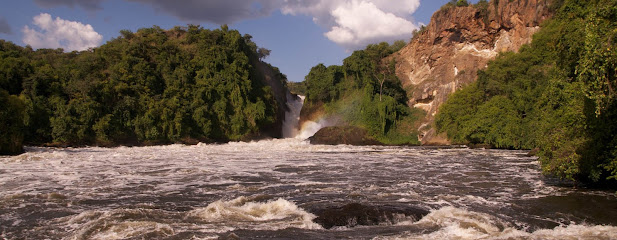
4 days murchison falls safaris
Explore the stunning landscapes and wildlife of Murchison Falls on a 4-day unforgettable safari adventure in Uganda's premier national park.
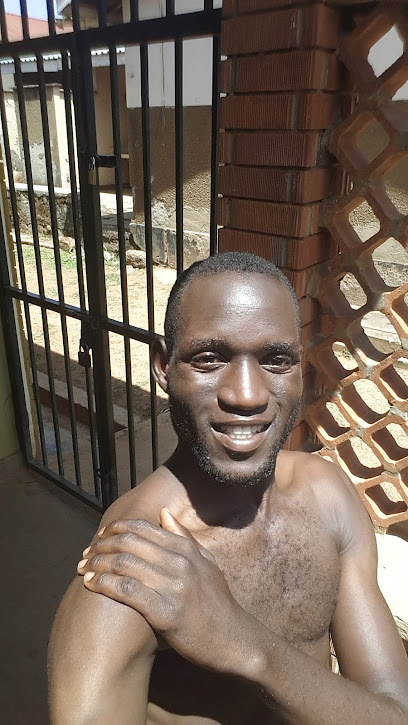
2 Days Murchison Falls Safari
Explore the majestic Murchison Falls National Park on a thrilling two-day safari, where wildlife adventures and breathtaking landscapes await.
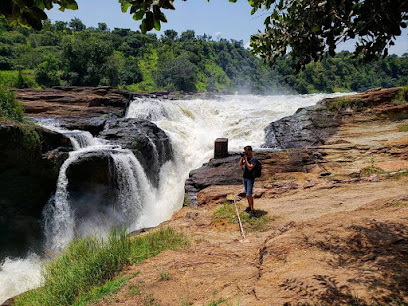
Unmissable attractions to see
Murchison Falls Uganda
Experience the breathtaking beauty of Murchison Falls, Uganda's largest national park, where the Nile's power meets stunning wildlife and landscapes.
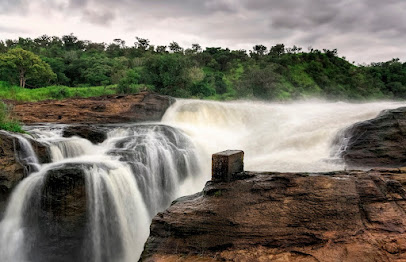
Murchison Falls National Park - Kichubanyobo entrance gate
Explore the breathtaking Murchison Falls National Park, home to stunning landscapes, diverse wildlife, and unforgettable adventures amidst nature's beauty.
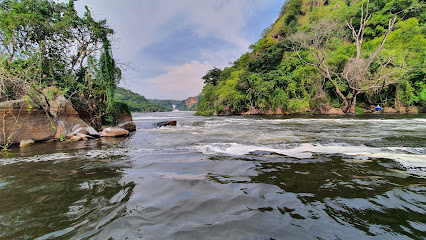
Red Chilli Rest Camp
Discover the beauty of Murchison Falls at Red Chilli Rest Camp, where adventure meets comfort in Uganda's stunning wilderness.
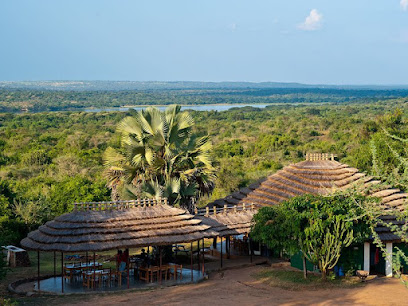
Murchison Falls National Park Northern Gate (Tangi)
Discover the breathtaking landscapes and diverse wildlife of Murchison Falls National Park - a jewel of Uganda's natural heritage.
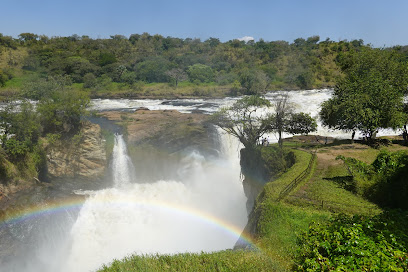
Karuma Falls
Experience the breathtaking beauty of Karuma Falls, a must-visit natural wonder in Uganda, perfect for adventure and tranquility seekers alike.
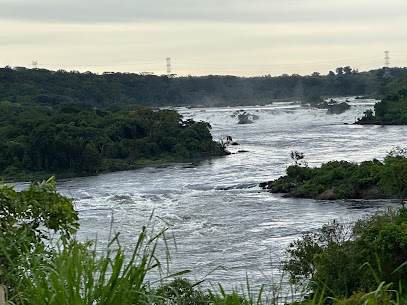
Delta Point
Experience the breathtaking beauty and serene landscapes at Delta Point in Panyimur, Uganda, where nature meets tranquility.
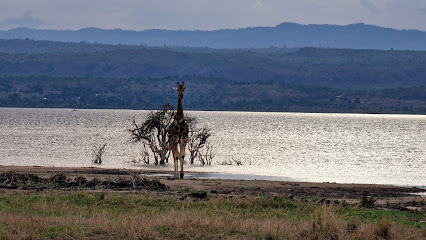
Murchison Falls National Park - Tangi entrance gate
Explore the breathtaking landscapes and diverse wildlife at Murchison Falls National Park, a premier destination for nature lovers and adventure seekers.
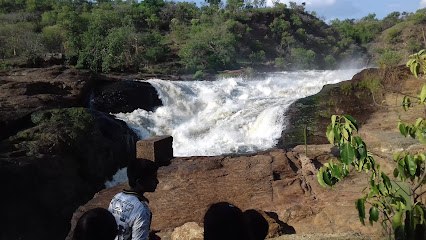
Murchison Falls National Park, Bugungu Gate
Explore the breathtaking beauty and rich wildlife of Murchison Falls National Park, a top destination for nature lovers and adventure seekers in Uganda.
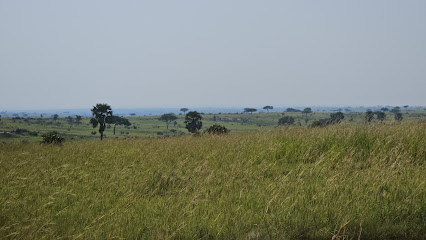
Murchison falls national park
Explore the breathtaking landscapes and rich wildlife of Murchison Falls National Park, Uganda's natural wonder with stunning waterfalls and diverse fauna.
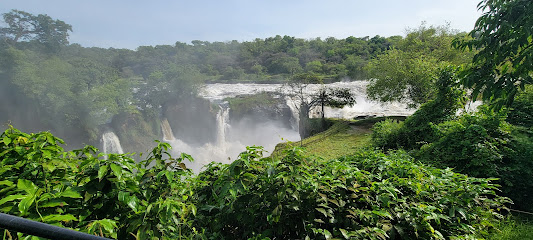
murchisonfallsuganda
Explore the breathtaking Murchison Falls National Park, Uganda's largest national park, rich in wildlife and stunning landscapes.

4 days murchison falls safaris
Explore the stunning landscapes and vibrant wildlife of Murchison Falls National Park on a captivating four-day safari adventure.
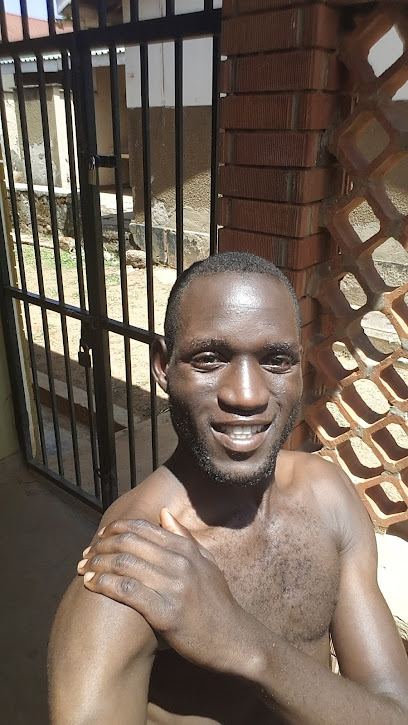
Busingiro Tourist Site
Discover the stunning landscapes and rich cultural heritage at Busingiro Tourist Site, a hidden gem for travelers in Uganda.
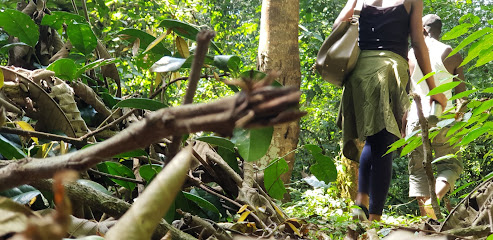
Brass for Life Foundation Uganda
Explore the transformative power of community initiatives at Brass for Life Foundation in Uganda, where culture and compassion meet.

Scenic View Point Buliisa
Discover the breathtaking beauty of Buliisa Scenic View Point, a serene escape in Uganda's stunning landscapes, perfect for nature lovers and photographers.

Ruinen der Pakuba Lodge von Idi Amin
Discover the haunting ruins of Pakuba Lodge, a historical gem near Murchison Falls National Park, revealing Uganda's complex past.
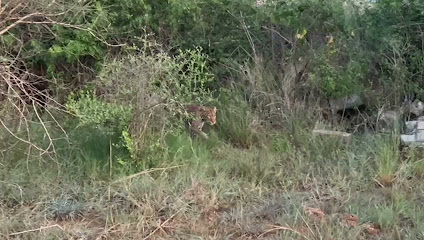
Essential places to dine
Nawab Asian Bistro
Experience the rich flavors of Asia at Nawab Asian Bistro in Kampala's Acacia Mall—a culinary haven for food lovers.
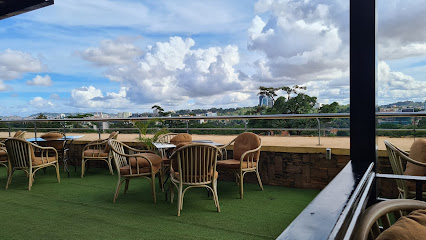
Haandi Restaurant
Experience the rich flavors of Indian cuisine at Haandi Restaurant in Kampala – where tradition meets taste.
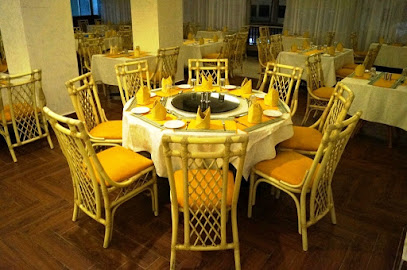
Kabalega Diner Limited
Savor delicious meals at Kabalega Diner Limited, the perfect stop along the Kampala-Gulu Highway for breakfast and lunch lovers.
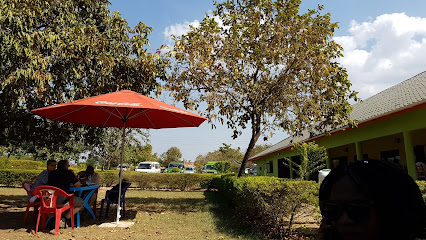
Pardis
Experience authentic Persian cuisine at Pardis in Kampala – where every dish tells a story and every bite is a delight.
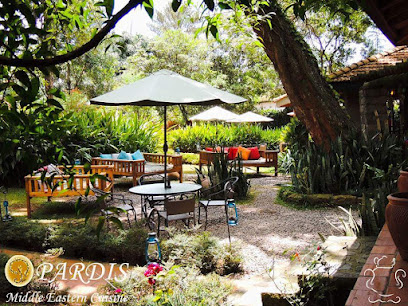
Khana Khazana
Discover authentic Indian flavors at Khana Khazana in Kampala - where every dish tells a story.
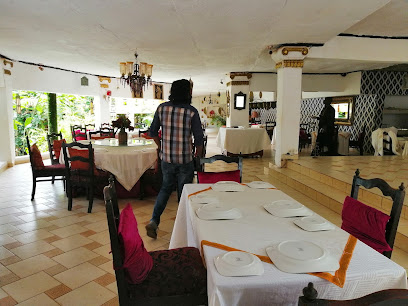
La Cabana Restaurant
Experience the exquisite blend of local Ugandan flavors and international cuisine at La Cabana Restaurant in Kampala's Speke Apartments.
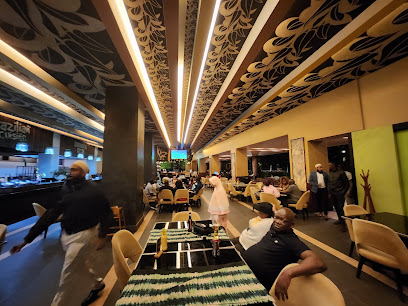
The Rolex Guy Entebbe
Discover the authentic taste of Uganda at The Rolex Guy in Entebbe—home of the delicious Rolex rolls and local culinary delights.
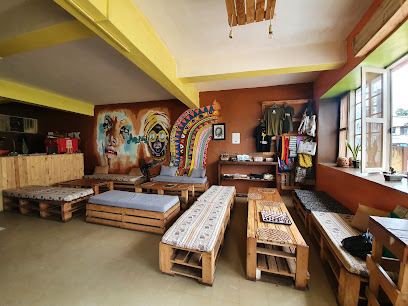
Pakuba Safari lodge
Discover unparalleled comfort amidst nature at Pakuba Safari Lodge in Murchison Falls National Park – where adventure meets tranquility.
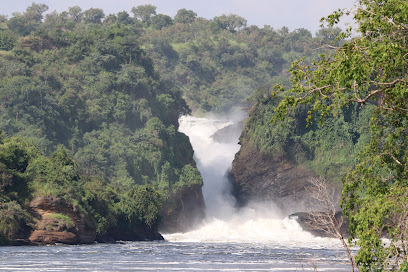
7 Hills Revolving Restaurant
Discover unparalleled dining with breathtaking views at 7 Hills Revolving Restaurant in Kampala - where every meal is a scenic adventure.
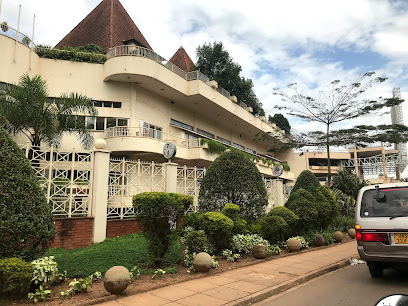
Bight of Benin
Discover the rich flavors of West Africa at Bight of Benin - Kampala's premier destination for authentic cuisine.
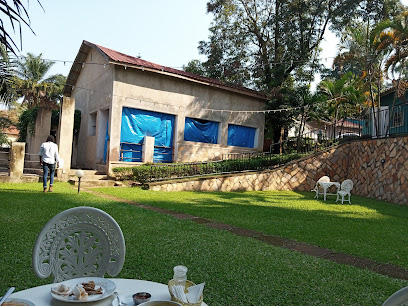
CAFE Marlette
Discover delicious fast food at Café Marlette in Kampala - perfect for travelers seeking quick bites and vibrant flavors.
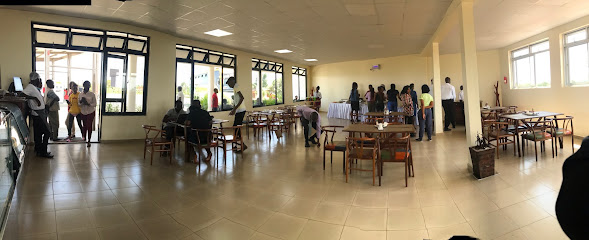
Khyber Pass Restaurant
Discover authentic Indian flavors at Khyber Pass Restaurant in Kampala—where tradition meets taste.
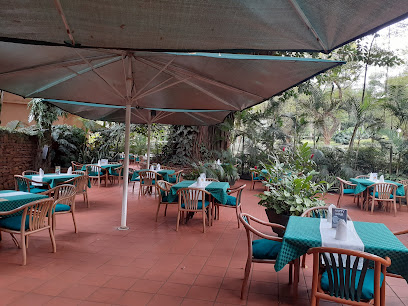
CHAPTER One Restaurant, Protea Hotel
Discover exquisite dining at CHAPTER One Restaurant in Kampala; where local flavors meet modern culinary artistry.
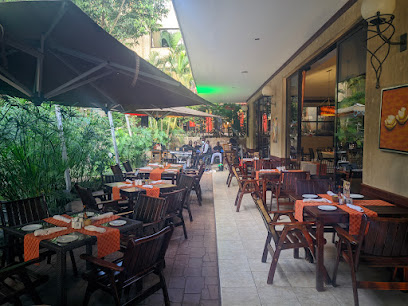
murchisson falls cafe
Discover local flavors at Murchisson Falls Cafe near Uganda's majestic waterfalls - a must-visit culinary gem for every traveler.

Kubby'S Bar And Restaurant
Experience delicious fast food at Kubby's Bar and Restaurant in Kampala - where local flavors meet international favorites.

Markets, malls and hidden boutiques
Murchison Falls Uganda
Discover the breathtaking beauty of Murchison Falls, where the Nile River cascades through a dramatic gorge, offering thrilling wildlife experiences and stunning landscapes.
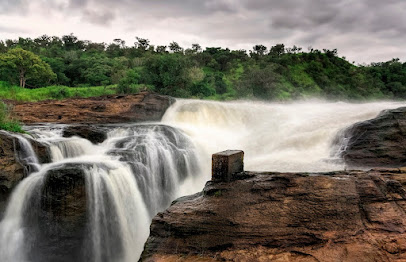
Murchison Falls National Park - Kichubanyobo entrance gate
Experience the breathtaking beauty and diverse wildlife of Murchison Falls National Park, a top destination for adventure seekers and nature lovers in Uganda.
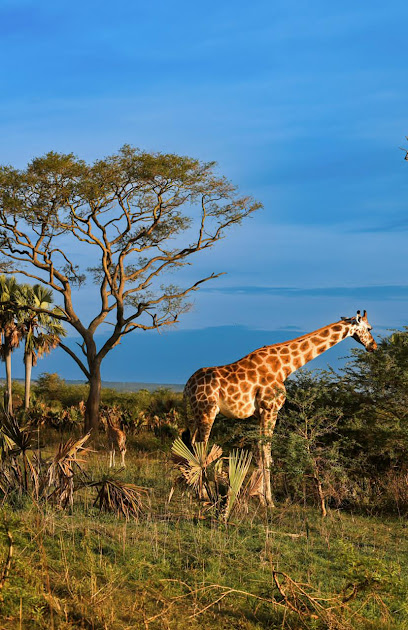
Pakuba Safari lodge
Discover the culinary treasures of Uganda at Pakuba Safari Lodge, where exceptional dining meets breathtaking views in Murchison Falls National Park.
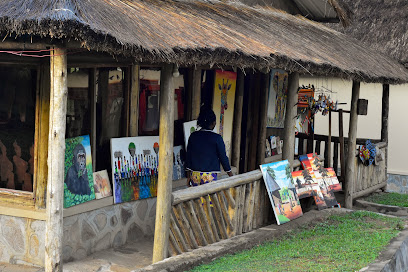
Murchison Falls National Park Northern Gate (Tangi)
Explore the stunning landscapes and diverse wildlife of Murchison Falls National Park, a must-visit destination for nature lovers and adventure seekers.
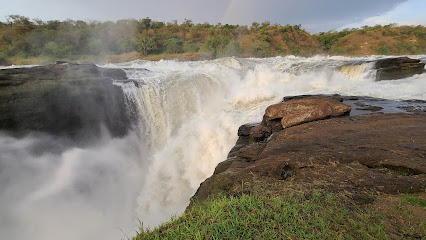
Murchison River Lodge
Discover the serene beauty and adventure at Murchison River Lodge, your gateway to the Nile and Murchison Falls National Park.

Murchison Falls National Park Safari
Experience the majestic Murchison Falls National Park, where adventure meets breathtaking natural beauty, wildlife, and rich cultural heritage.
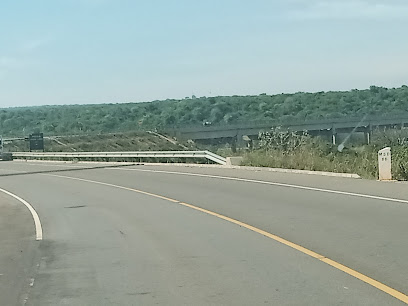
MTN Service Center
Explore Masindi with ease by connecting to the world at MTN Service Center, your reliable electronics store in Uganda.
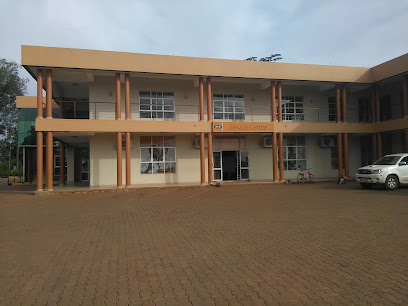
Karibuni Supermarket
Explore local flavors and vibrant Ugandan culture at Karibuni Supermarket in Masindi, your go-to grocery store for fresh produce and unique snacks.
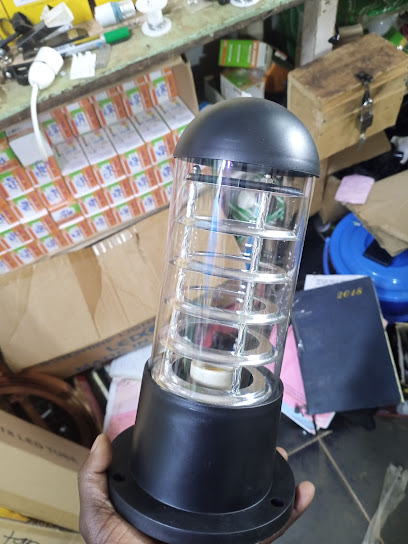
Shree Naranarayan Africa Ltd
Unearth hidden treasures at Shree Naranarayan Africa Ltd, a charming second-hand store in Masindi, where unique finds await every traveler.
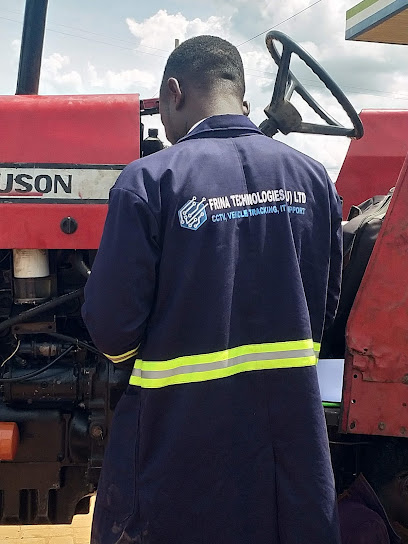
Lamaro Studio
Discover the cultural essence of Gulu at Lamaro Studio, where handcrafted treasures await every visitor.
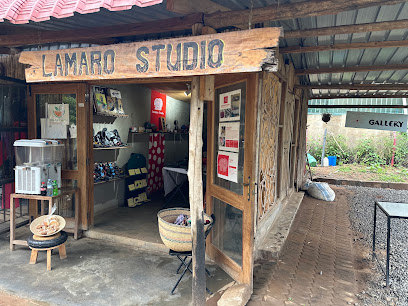
Murchison Falls Safaris
Experience the majestic beauty and thrilling wildlife at Murchison Falls Safaris, Uganda's premier destination for adventure and nature lovers.
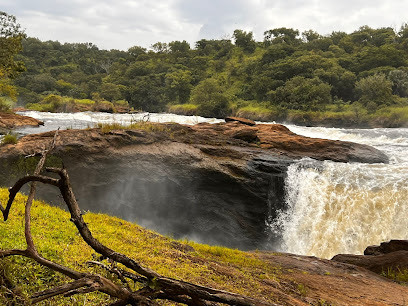
Murchison Falls National Park
Explore the majestic Murchison Falls National Park, where stunning waterfalls meet vibrant wildlife in Uganda's most celebrated natural sanctuary.
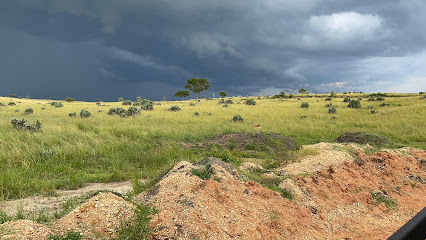
Murchison falls national park
Explore the breathtaking landscapes, diverse wildlife, and majestic waterfalls of Murchison Falls National Park in Uganda.
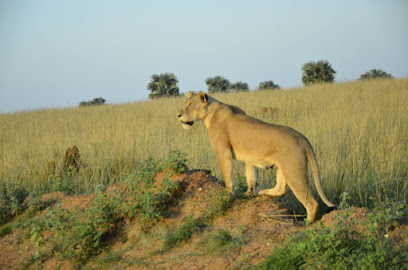
Murchison Falls Safari
Experience the thrill of wildlife and the beauty of nature at Murchison Falls Safari, Uganda's premier safari destination.
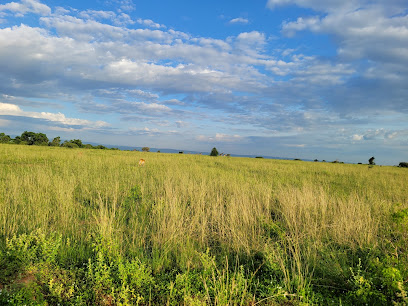
Mkuki Safari Lodge
Discover the charm of Uganda at Mkuki Safari Lodge, where adventure meets comfort in a stunning natural setting.
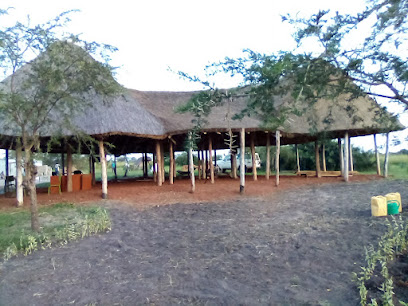
Essential bars & hidden hideouts
Murchison falls cafe
Experience the enchanting flavors and stunning views at Murchison Falls Café, a perfect culinary retreat amidst Uganda's breathtaking landscapes.
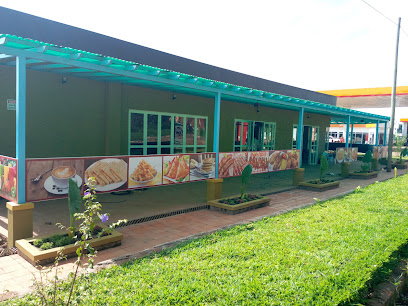
D9 Bar and Grill
Discover the vibrant flavors and lively nightlife at D9 Bar and Grill in Masindi, Uganda, where every meal is a celebration of local cuisine.
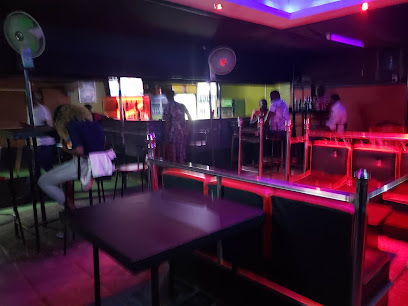
Sambiya River Lodge's Dining
Experience authentic Ugandan cuisine at Sambiya River Lodge's Dining, where each meal is a celebration of local flavors and natural beauty.
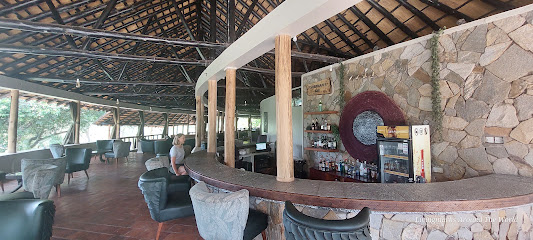
Slec Club
Experience the flavors of Uganda at Slec Club, Masindi's premier grill restaurant offering delicious local dishes in a vibrant atmosphere.

Volcano Discotheque Bar & Restaurant
Discover the vibrant nightlife and delicious grill cuisine at Volcano Discotheque Bar & Restaurant in Masindi, a hub for food and fun.
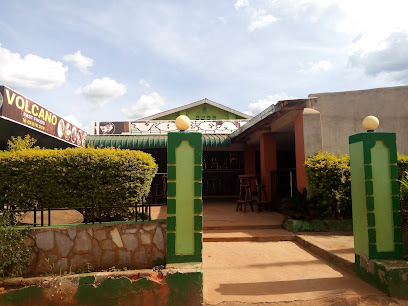
Smile Corner pub
Experience the local flavors at Smile Corner Pub in Bweyale, where delicious grilled dishes meet a warm and inviting atmosphere.
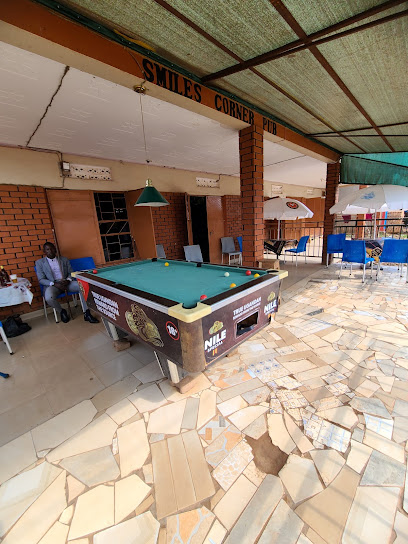
Kash Bar
Discover the vibrant atmosphere of Kash Bar in Masindi, where local flavors and friendly vibes await you.
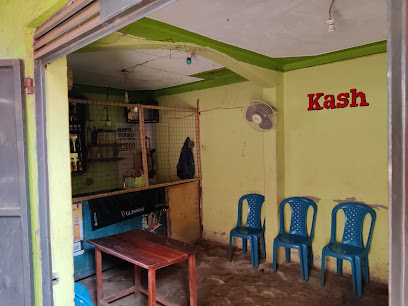
Dolphin bar and cafe
Experience the vibrant atmosphere and delicious offerings at Dolphin Bar and Cafe in Bweyale, Uganda, a perfect retreat for tourists.
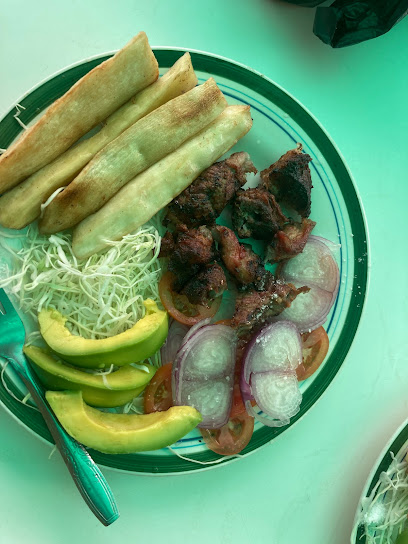
Easy life bar and logde
Discover the vibrant atmosphere of Easy Life Bar and Lodge in Rwekunye, where local culture meets relaxation for every traveler.

夸帕奇山庄
Experience the vibrant atmosphere and local flavors at 夸帕奇山庄, a hidden bar gem in Uganda, perfect for relaxation and socializing.
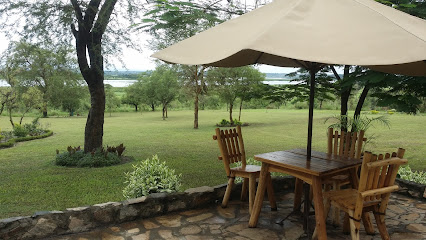
Gravity bar and grill
Discover the flavors of Anaka at Gravity Bar and Grill, where local meets international in a vibrant and welcoming atmosphere.
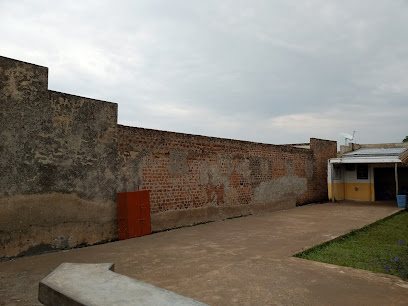
Fishmen's Bar
Discover the tranquil charm of Fishmen's Bar in Sambiya Village, where relaxation meets local culture by the serene Sambiya River.

Good luck grill and bar
Discover the vibrant atmosphere and local flavors at Good Luck Grill and Bar in Anaka, where great drinks and friendly faces await.

ERIABU DEPOT, BAR AND LODGE
Unwind at Eriabu Depot, Bar and Lodge, where local culture meets vibrant nightlife in the heart of Masindi.
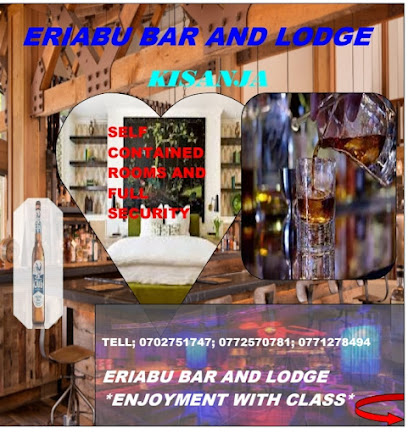
Local Phrases about Murchison Falls National Park
-
- HelloYaa
[yah] - GoodbyeTaata
[tah-tah] - YesEego
[ee-go] - NoNyeego
[nye-ee-go] - Please/You're welcomeMwattu
[mwa-too] - Thank youWebale
[weh-bah-leh] - Excuse me/SorryNsonyiwa
[nsoh-nee-wah] - How are you?Oli otya?
[oh-lee oh-cha] - Fine. And you?Gyendi. Nawe?
[jyen-dee. nah-weh] - Do you speak English?Ogamba olungereza?
[oh-gahm-bah oh-loon-geh-reh-zah] - I don't understandSikilaba
[see-kee-lah-bah]
- HelloYaa
-
- I'd like to see the menu, pleaseNkikolawo emenyoo, kubanga
[nkee-koh-lah-woh eh-meh-nyoh, koo-bahn-gah] - I don't eat meatSikulya enyama
[see-koo-lyah eh-nyah-mah] - Cheers!Mwattu
[mwa-too] - I would like to pay, pleaseNkola okulya, kubanga
[nko-lah oh-koo-lyah, koo-bahn-gah]
- I'd like to see the menu, pleaseNkikolawo emenyoo, kubanga
-
- Help!Ssawa!
[sah-wah] - Go away!Genda wansi!
[gen-dah wahn-see] - Call the Police!Tukole Poliisi!
[too-koh-leh poh-lee-see] - Call a doctor!Tukole daktari!
[too-koh-leh dahk-tah-ree] - I'm lostNjagala
[nja-gah-lah] - I'm illNze tutandika
[n-zeh too-tahn-dee-kah]
- Help!Ssawa!
-
- I'd like to buy...Nkola okola...
[nko-lah oh-koh-lah...] - I'm just lookingNkola okwagala
[nko-lah oh-kwah-gah-lah] - How much is it?Omanyi bino byo?
[oh-mah-nyee bee-noh byoh] - That's too expensiveEbyo byaffe byaamwe
[eh-byoh byahf-feh byah-mweh] - Can you lower the price?Ogenda okugoya omugalo?
[oh-gen-dah oh-koo-goh-yah oh-moo-gah-loh]
- I'd like to buy...Nkola okola...
-
- What time is it?Saa gani?
[sah gah-nee] - It's one o'clockSawa kumi
[sah-wah koo-mee] - Half past (10)Kumi na kumi mukaaga
[koo-mee nah koo-mee moo-kah-gah] - MorningEnkya
[ehn-kyah] - AfternoonEkiwawa
[eh-kee-wah-wah] - EveningEkkya
[ehk-kyah] - YesterdayNakakasita
[nah-kah-kah-see-tah] - TodayEno
[eh-noh] - TomorrowMakamwa
[mah-kahm-wah] - 1Emu
[eh-moo] - 2Biri
[bee-ree] - 3Ssatu
[sah-too] - 4Nnya
[nnyah] - 5Tano
[tah-noh] - 6Mukaaga
[moo-kah-gah] - 7Munaana
[moo-nah-nah] - 8Mwenda
[mwend-ah] - 9Mwenda wuuka
[mwend-ah woo-kah] - 10Kumi
[koo-mee]
- What time is it?Saa gani?
-
- Where's a/the...?Wali...
[wah-lee] - What's the address?Wali ebbaluwa?
[wah-lee eb-bah-loo-wah] - Can you show me (on the map)?Ogenda kundekera?
[oh-gen-dah koon-deh-keh-rah] - When's the next (bus)?Omanyi lino?
[oh-mah-nyee lee-noh] - A ticket (to ....)Tikiti...
[tee-kee-tee]
- Where's a/the...?Wali...
History of Murchison Falls National Park
-
The dramatic Murchison Falls were first brought to the world's attention by British explorers Sir Samuel Baker and his wife Florence in 1864. They named the falls after Sir Roderick Murchison, the then-President of the Royal Geographical Society. The Bakers were deeply impressed by the power and beauty of the falls, marking the beginning of Western interest in this natural wonder.
-
During the British colonial period in the early 20th century, the area around Murchison Falls began to attract hunters and explorers. Recognizing the ecological significance of the region, the British colonial government established the area as a game reserve in 1926. Later, in 1952, it was officially designated as Murchison Falls National Park, making it one of Uganda's oldest national parks.
-
Murchison Falls National Park is part of the greater Murchison Falls Conservation Area (MFCA) that includes the Bugungu and Karuma wildlife reserves. The park is renowned for its rich biodiversity, including diverse ecosystems such as savannah, riverine forest, and woodland. It is home to a variety of wildlife species, including elephants, lions, giraffes, and over 450 bird species, making it a critical area for conservation and biodiversity.
-
During the 1970s and 1980s, Uganda experienced significant political turmoil and civil unrest, which had a detrimental impact on Murchison Falls National Park. Poaching and habitat destruction were rampant, leading to a dramatic decline in wildlife populations. Efforts to restore and protect the park have been ongoing since the late 1980s, with a focus on conservation and sustainable tourism.
-
The area surrounding Murchison Falls is home to several indigenous communities, including the Banyoro and Alur people. These communities have a deep cultural connection to the land and its natural resources. Traditional beliefs and practices often revolve around the river and the falls, which are considered sacred and hold significant spiritual value.
-
In recent years, Murchison Falls National Park has become a focal point for wildlife conservation and eco-tourism. Organizations such as the Uganda Wildlife Authority (UWA) and various international NGOs work tirelessly to protect the park's unique ecosystems. Anti-poaching measures, community engagement, and sustainable tourism initiatives are key components of these modern conservation efforts.
-
Murchison Falls has captured the imagination of filmmakers, writers, and artists around the world. The falls and the surrounding park have been featured in various documentaries, travel shows, and films, highlighting their stunning beauty and ecological importance. This media exposure has contributed to the park's status as a premier tourist destination in Uganda.
Murchison Falls National Park Essentials
-
Murchison Falls National Park is located in northwestern Uganda. The nearest international airport is Entebbe International Airport, approximately 305 kilometers away. From Entebbe, you can take a domestic flight to Pakuba Airfield, which is within the park, or to Bugungu Airstrip, located nearby. Alternatively, you can travel by road from Kampala, which is about a 5-6 hour drive. Private car hire, taxis, and organized tours are available for this journey.
-
Within Murchison Falls National Park, the most common modes of transportation are 4x4 safari vehicles, which can be rented with or without a driver. Boat safaris on the Nile River are also popular for viewing wildlife and the falls. There are no public transport services within the park, so visitors typically rely on guided tours and private vehicles to get around.
-
The official currency in Uganda is the Ugandan Shilling (UGX). Credit cards are accepted in some lodges and larger establishments within and around the park, but it is advisable to carry cash, especially for smaller purchases and tips. ATMs are available in larger towns like Masindi and Hoima, but it is wise to withdraw sufficient cash before entering the park.
-
Murchison Falls National Park is generally safe for tourists, but it is important to take standard precautions. Avoid isolated areas and travel in groups when possible. Do not leave valuables in plain sight in your vehicle, and always lock your car. Be cautious around wildlife and follow the guidelines provided by your guide. There are no specific high-crime areas targeting tourists within the park, but staying vigilant is always advisable.
-
In case of emergency, contact Uganda Wildlife Authority (UWA) rangers or park officials immediately. There are ranger posts and UWA offices within the park. For medical emergencies, the nearest hospital is in Masindi, about 2 hours away by road. It is recommended to have travel insurance that covers medical emergencies. The national emergency number in Uganda is 999 or 112.
-
Fashion: Do wear lightweight, breathable clothing and comfortable walking shoes. Neutral colors are recommended for wildlife viewing. Avoid bright colors and camouflage patterns. Religion: Do respect local customs and traditions. If visiting nearby communities, dress modestly. Public Transport: There is no public transport within the park. If using local transport outside the park, be respectful and follow local etiquette. Greetings: Do greet people with a handshake. A friendly greeting in the local language, Swahili or Luganda, is appreciated. Eating & Drinking: Do try local dishes and accept hospitality graciously. Avoid drinking tap water; bottled water is recommended.
-
To experience Murchison Falls National Park like a local, take part in a community tourism project in the nearby villages. Engage with local guides who can provide insights into the culture and history of the area. Don't miss the opportunity to visit the top of the falls for a breathtaking view. For a unique experience, consider a night safari to see nocturnal wildlife.
Trending Landmarks in Murchison Falls National Park
-
Murchison Falls National Park - Kichubanyobo entrance gate
-
Red Chilli Rest Camp
-
Murchison Falls National Park Northern Gate (Tangi)
-
Murchison Falls National Park Safari
-
Murchison Falls Bamboo Village
-
Murchison Falls National Park - Tangi entrance gate
-
Murchison Falls Safaris
-
Murchison Falls National Park, Bugungu Gate
-
Murchison falls national park
-
Murchison Falls Safari
-
Murchison Falls safari
-
murchisonfallsuganda
-
3 Days Murchison Falls Safari Uganda
-
4 days murchison falls safaris
-
2 Days Murchison Falls Safari
Nearby Cities to Murchison Falls National Park
-
Things To Do in Lira
-
Things To Do in Arua
-
Things To Do in Kampala
-
Things To Do in Fort Portal
-
Things To Do in Entebbe
-
Things To Do in Jinja
-
Things To Do in Masaka
-
Things To Do in Mbale
-
Things To Do in Mbarara
-
Things To Do in Kitale
-
Things To Do in Bukoba
-
Things To Do in Kisumu
-
Things To Do in Nyagatare
-
Things To Do in Eldoret
-
Things To Do in Ruhengeri






